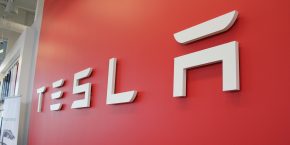
Tesla is planning a new “congestion fee” at Supercharger stations, and it’s building on top of an already controversial practice.
Back in 2019, Tesla introduced a new feature at Supercharger stations to help shorten charging sessions during busy times. The automaker started to limit owners’ state of charge (SOC) to 80% at select high-traffic sites.
Most people don’t charge at 100% anyway, and the last 20% is much slower to get to, so this would have the opportunity to greatly reduce the average charging session time.
However, it was worrying to many owners as you sometimes do need to charge more than 80%. What can you do in those cases?
Tesla quickly modified the feature to automatically set the state of charge of vehicles at those stations at 80%, but owners could manually increase it back to 100% if they wanted to. This has been the solution for years and quelled most owners’ concerns. But now, Tesla is apparently seeing the need for a more drastic approach.
Tesla hacker Green, famous for diving into Tesla’s code and finding new features the automaker is working on, has looked into the latest Tesla software update and found that Tesla was working on a “congestion fee”:
It sounds like at those busy stations where Tesla automatically sets the state-of-charge at 80%, the automaker would now charge you more if you decide to lift the limit above 80%.
Top comment by Gary Monaghan
The solution is to build enough chargers so there isn't any congestion. Gas stations don't charge more if there is constantly a line at the pump. Instead, a competitor opens across the street to take that overflow business.
There’s no word on how much this new fee would be.
It’s not the first time that Tesla has introduced a new fee to Superchargers. The automaker has also instated the “Supercharger Idle fee,” which applies when a car is done charging but still parked at a Supercharger.
This fee is a lot less controversial as most people agree that Superchargers are for charging, not parking.
But what do you think of this new possible congestion fee? Let us know in the comment section below.
FTC: We use income earning auto affiliate links. More.




Comments